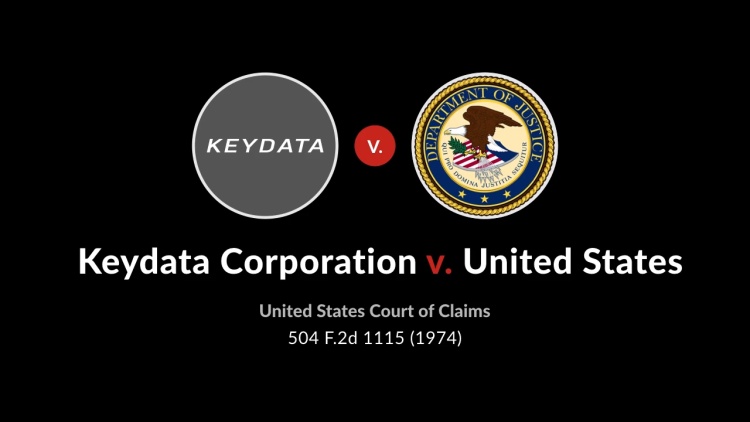Keydata Corporation v. United States
United States Court of Claims
504 F.2d 1115 (1974)
- Written by Anjali Bhat, JD
Facts
In 1968, Keydata Corporation (Keydata) (plaintiff) and the National Aeronautics and Space Administration (NASA) both leased space in a building owned by Wyman Street Trust. Keydata’s rented space included a computer room. Keydata and the United States (defendant), acting for NASA, agreed that on January 1, 1969, Keydata would surrender possession of the computer room and the United States would begin to lease it. Keydata and the United States also agreed that the United States would pay $39,000 for improvements to the computer room. Keydata did not vacate the computer room on January 1, 1969. The next day, the United States sent Keydata a letter canceling the United States’ lease of the computer room because the room was not available for occupancy. The United States also did not pay the $39,000 for the improvements. Keydata brought suit against the United States for payment of the $39,000 as Wyman's assignee. Keydata argued Wyman fully performed its obligations as landlord, because Wyman was only obligated to convey to the United States the right of possession of the computer room, not actual possession of the room. Keydata argued the United States’ rescission of the lease was therefore illegal and the United States owed the $39,000. Both parties moved for summary judgment.
Rule of Law
Issue
Holding and Reasoning (Davis, J.)
What to do next…
Here's why 908,000 law students have relied on our case briefs:
- Written by law professors and practitioners, not other law students. 47,100 briefs, keyed to 997 casebooks. Top-notch customer support.
- The right amount of information, includes the facts, issues, rule of law, holding and reasoning, and any concurrences and dissents.
- Access in your classes, works on your mobile and tablet. Massive library of related video lessons and high quality multiple-choice questions.
- Easy to use, uniform format for every case brief. Written in plain English, not in legalese. Our briefs summarize and simplify; they don’t just repeat the court’s language.





